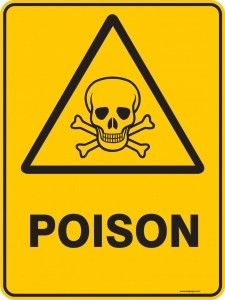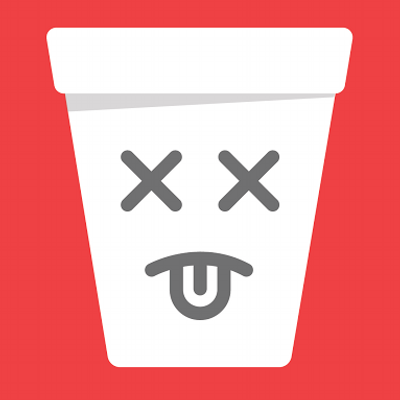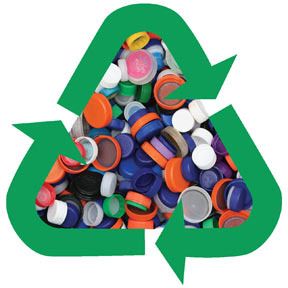As a matter of fact, each type or “resin” has a unique chemical formula & special properties, categorized by a number ranging one through seven.
As fellow gung-ho greenies, we bet you’re no stranger to the recycling symbols imprinted beneath your plastic purchases. V? PS? 6? HDPE? What is this, Morse code? Never fear - we’re here to help you embrace the differences, make earth-friendly decisions & dispose of your waste the eco way.
So next time you’re wondering if “PETE” signed the bottom of your water bottle, revisit this list, toss that bad boy into your recycling bin & know we’ve got your back. While we might be all about the papery brown stuff here at GB HQ, when it comes to recycling – we don’t play favorites.
Common uses: Water bottles, salad-dressing containers, peanut butter jars
Recyclable? Yes!
Did You Know? Beware! A number of recent studies reveal that PET leaches endocrine disruptors into contents under certain conditions. Prolonged high heat is a no-no when it comes to PET!
Number 2: HDPE (high density polyethylene)
Common uses: Detergent bottles, hard hats, milk jugs, bottle caps, hula hoops
Recyclable? Yes!
DYK? A versatile material, HDPE is readily recycled (and it’s non-leaching!). However, a number of curbside recycling programs will only allow containers that... wait for it...have “necks.”
Number 3: PVC (polyvinyl chloride)
Common uses: Plastic wrap, medical equipment, siding & windows
Recyclable? No. It is known as a “poison plastic”!
DYK? According to the Environmental Protection Agency, PVC is classified as a human carcinogen. Stay safe and keep number 3 plastic far, far away from last night’s leftovers. (better yet, store them in a GreenBox!)
Number 4: LDPE (low density polyethylene)
Common uses: Squeezable bottles, shopping bags, carpet, furniture
Recyclable? Sometimes! While LDPE is reusable, it is not always recyclable.
DYK? A flexible plastic, LDPE is more readily accepted by local recycling programs than it once was. FYI – plastic shopping bags can be returned to many stores for recycling purposes (better yet, get yourself a reusable tote!).
Common uses: Syrup & ketchup bottles, straws, caps, yogurt containers
Recyclable? Sometimes! Check with your local recycling department.
DYK? Durable & BPA-free, PP is a favorite for reusable bags and food storage containers. Health-conscious consumers, rejoice!
Number 6: PS (polystyrene)
Common uses: Egg cartons, packing pellets, disposable plates & cups
Recyclable? No!
DYK? Popularly known as Styrofoam, polystyrene is notorious for its environmental burden. Non-biodegradable and non-recyclable, the material occupies approximately 30% of landfill space. In 2006, the U.S. was discarding over 14 million tons of polystyrene products annually. Say no to Styro!
Number 7: Miscellaneous
Common uses: Sunglasses, DVDs, nylon, signs & displays
Recyclable? Sometimes! Check with your local recycling department.
DYK? Number 7 is a catch-all category. All are welcome. ☺
+(RGB)+4pt+(BLOG).png)










We can reuse or recycle things those are identified through certain numbers.
ReplyDeleteto here: https://lifeogy.com/recycle-number/
The Custom Boxes Print.us has opened the new passes for custom printed boxes. We have a high quality of personalized packages with 4 color digital and unique box printing services.
ReplyDeleteThe Custom Packaging Boxes Wholesale
Custom Boxes Wholesale
Business Cards
Mailer Boxes
Thanks for sharing this great information with us. Keep sharing such informative posts in the future. HDPE Plastic Extrusion
ReplyDeleteNice
ReplyDeleteGreat info, thank you publisher
ReplyDeleteGreat post thankyoou
ReplyDeleteThis information about different types of plastic and their recyclability will be very helpful.
ReplyDelete